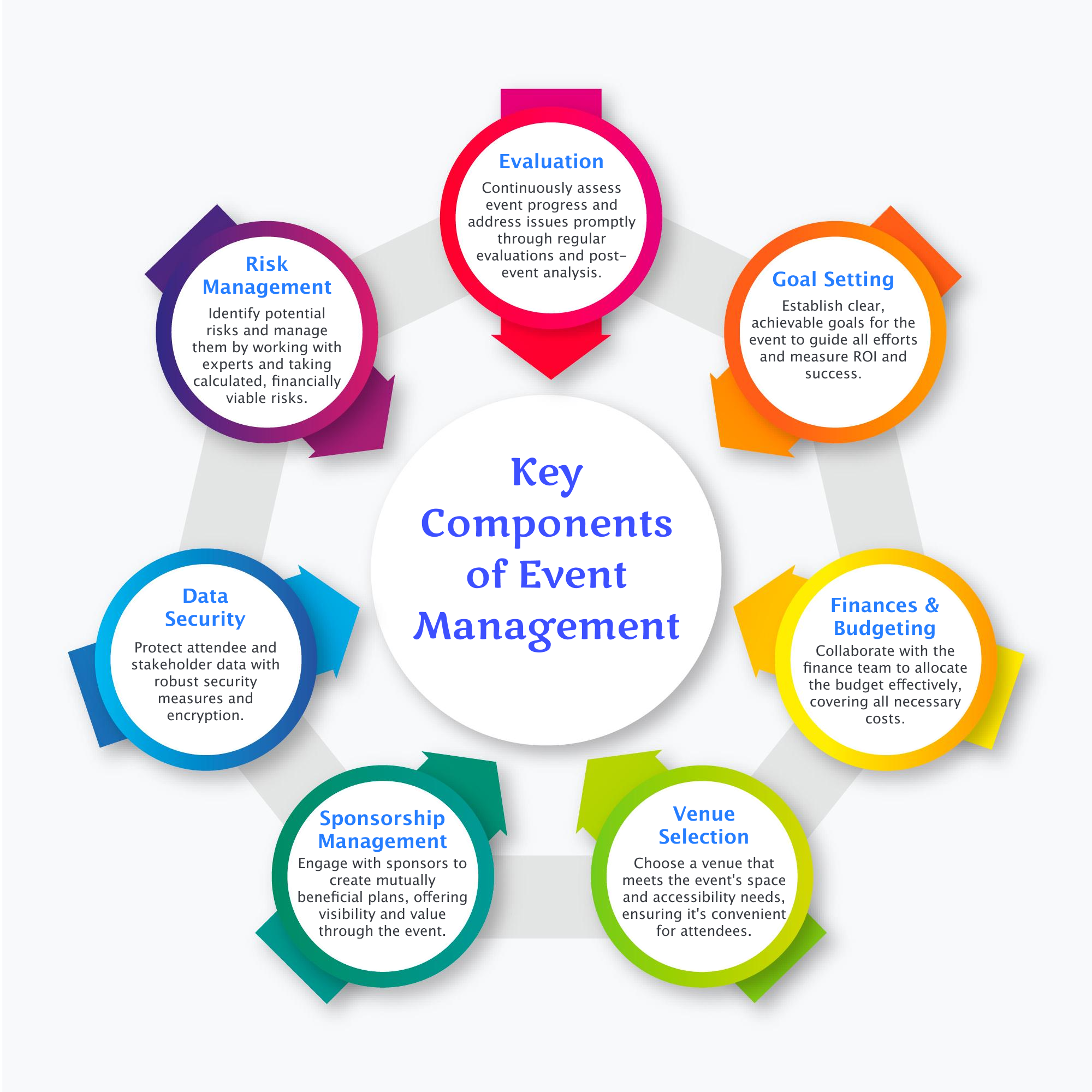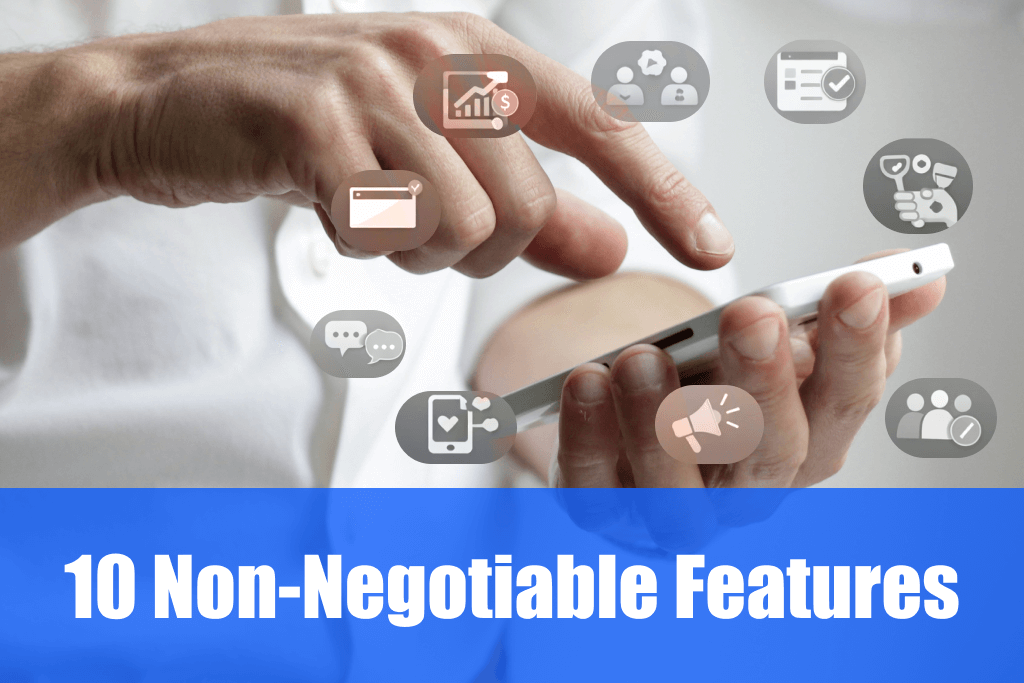When you walk into an event, you can't help but feel the magic -like walking into an old closet and finding Narnia. Be it a themed birthday party, large-scale tech conference, an apple product launch event or even your neighbors dreamy wedding - to an attendee, such events are a promise of great experiences.
But what is the magician’s trick and what exactly unfolds behind the curtain? We are here to show you exactly how these magical experiences are created. But first, let's start with the basics.
What Is Event Management?
Event Management involves the planning, management, execution and analysis of an event. Event Management is often confused with event planning because certain components between the 2 do overlap. Yet there is a marked difference between Event Management and Event Planning.
Event Planning focuses on executing the aesthetics of the event - from venue management, executing, planning catering options, curating personalized activities, seating management and more. In event planning there is more emphasis on how guests/attendees experience the event. It’s safe to say that event planning is a key component that comes under the larger umbrella of Event Management.
Event Management, on the other hand, includes pre-event goal setting, onboarding attendees, event engagement, partnering with sponsors and exhibitors and event day networking. It doesn’t end with the event but often involves post-event analysis of the event's performance metrics.
.jpeg)
Types of Event Management
The complexities of events are not just in execution but in planning the type of event you need to host. For instance, it’s appropriate to plan a workshop for a pottery brand but not okay to plan a trade show for a conference on pets. Similarly if your attendees are spread across the globe and you plan to have an exclusively in-person event, then your event is bound to fail. Event types need to marry the industries and attendee’s requirements. The following categories will help clarify these mergers for you:

- Corporate Events - Conferences, trade shows, expos, team-outings, shareholder meetings, product launches, service announcement events or corporate award nights all come under corporate events.
- Social Events - Something we are all familiar with, have perhaps even planned for ourselves or a loved and absolutely love to attend. These include personal or community milestone events and experience such as parties, graduation ceremonies, religious events, alumni reunions and more.
- Entertainment Events - Be it a stand up show or a play on Shakespeare’s tragedies - entertainment events are always in demand. Events like film screenings, concerts, game nights, wrestling matches are all events that help you unwind and relax.
- Trade Shows and Exhibitions - They are extremely popular in B2B and B2C industries. Trade Shows and Exhibitions are a great way to showcase products, network with industry professionals, listen to expert speakers and gain insights on industry’s latest trends. These are often flooded with attendees and are coveted by exhibitors and sponsors for the conversions they bring in.
- Nonprofit/Fundraising Events - Humanitarian causes also need visibility and the best way to bring awareness to a cause is with events. Several nonprofits organize fundraising galas like the famous Met Gala, charity auctions, fairs, community conferences and drives to drive more funds to their mission.
- Academic Events - These include events like academic conferences, workshops, opportunity summits, seminars, soft skills workshops and more.
- Sports Events - Be it the FIFA World Cup or the tennis championships - these revered events are both recreational and personal. These events are also massive crowd pullers and often see a massive influx of people.
- Virtual or Hybrid Events - With the pandemic and a surge in virtual conferencing tools, the event landscape has changed. You too must have organized a virtual or hybrid event to reach out to a wider audience.
What Are The 5 Stages of Event Management?
Event Management is best managed and executed when it’s carried out in phases. You too can take a leaf off this guide and divide your event responsibilities into key phases. While these stages can look different for your brand, their inherent idea remains the same - to simplify your event tasks and to automate and streamline most, if not all, aspects of your event.
.jpeg)
Stage 1 - Planning
This is a defining step of your event strategy. A good event plan includes details about event goal, venue, theme, outreach, resource needs and financial management. The 'what', 'where' and 'how' of your event will be established at this stage. Remember a thorough and well researched event plan can reduce execution bottlenecks by 50%. Some of the event planning tips are as follows.
- Begin with identifying your target audience. These could be 50 something dentists living in Kansas or teenagers looking for counseling on college scholarships. Recognizing your target audience, identifying their pain areas and curating your event to have elements that solve their problem - is a key facet of a successful event.
- While you work on point 1, simultaneously chart out your event goal. This can mean aiming for higher attendance, improved engagement, more leads for sponsors or higher booth visits. This goal is your Polaris or North Star. Keeping this in sight helps you curate an event experience that is profitable for you and your attendees.
- Invest in good tech at the onset of your event. You need to invest in a good event management system like Eventify that can help streamline your efforts. These event management portals and event mobile apps are designed to automate multiple processes. You can also narrow down on conference software and tech to live stream your event in case you are hosting a virtual or hybrid event.
- Now is also a good time to decide on the type of event you want to host. You can host a live event, virtual event or a hybrid event. Each type has its own perks and can be executed well if you have above average event planning skills and a good event management software by your side.
You can get help from the best Event Management Companies in Dubai as well.
Phase 2 - Marketing and promotion
With the planning stage completed you now need to tell people about your event - especially your target audience. Here’s everything you need to know about promoting your event to grab eyeballs.
- Start with a strategy that helps you meet the event goals you charted in phase 1. This strategy is a framework of how and where you will attract your relevant audience. If your target audience is college going students looking to upskill then you might benefit with a social media campaign or by handing out flyers right outside colleges. A good and practical marketing approach can make or break your event.
- Next is creating the necessary collaterals. You will need a website, social media handles and landing pages to broadcast everything about your event. You can opt for a free and easy to develop event website builder or invest in resources to design websites, banners, landing pages, business cards and more. Good aesthetics always bring more visibility - so remember this as you create your brand collateral.
- With 2 covered, you will need to grab eyeballs to your event. A good strategy is to promote speakers from your event. This is because people often gravitate towards experts in the field. Your attendees want to know how they can benefit from the knowledge shared by speakers. You can organize a pre-event Q&A with a speaker or have them on a podcast where they speak of the event.
- Leverage the power of social media to promote your event organically and with paid ads. It’s likely that more than half your users are active on Instagram, LinkedIn, Facebook or Twitter. The reach on these platforms is great and offers an accessible way by which you can promote your event.
Stage 3 - Execution
Now we come to the ‘D-Day’. With months of planning and promotion behind you, it’s now time to execute your event.
- Start with automating your registrations and ticketing processes. This will save you time and will help you gain more transparency on the ticket sales journey. Event registration software also helps you securely accept payments with no hassles.
- Next comes creating avenues and experiences that improve attendee networking. One of the most popular ways of achieving this is via event mobile apps. This helps you consistently communicate with your attendees, sponsors and exhibitors via notifications, social feeds, chat options and surveys. Attendees can use the event mobile apps to network with other attendees and even participate in fun gamification challenges with each other.
- Check in and badge printing - Your check in chaos needs to be better managed on event day. It creates a good first Impression for your attendees and helps them easily navigate long queues. You can even automate badge printing with event management software like Eventify. All your attendees will then need to do is scan a QR code that triggers a process to automatically print badges.
.jpeg)
Phase 4 - Post Event Analysis
With the event successfully behind you, it’s time to take a deep look into what worked and what didn’t for your event.
- You can use dedicated dashboards on your event planning software to understand session performance, speaker engagement, participation metrics and more. These will give you a glimpse into whether the event was of value to your target audience or not.
- Data on lead conversions, booth visits and overall attendee engagement with sponsors and exhibitors lends insights on how powerful the communication spaces in your event are.
- You can then share these insights with exhibitors, speakers and sponsors to keep everyone in the loop about your event success and areas of improvement.
Stage 5- Preparing for the next event
Once you have completed one event cycle from planning to execution, you need to analyze which aspects worked for your event and which didn’t. This will help you prepare better for future events and also ensure that your event experience guarantees recurring footfalls.
"Event management is the magic behind the curtain. It's the meticulous planning, seamless execution, and strategic thinking that transforms an idea into an unforgettable experience." - Jacqueline Kurtz, CMP, Meeting Design Consultant
What are the 7 key components of event management?
Now that we have addressed most of your questions around what is event management, we will leave you with the key components that are the foundation of the 5 phases of event management.

- Goal Setting - We can't emphasize this enough. You need to lay down an achievable goal for your event. This goal lends direction to all your efforts and is a key determiner of ROI and profits. When it comes to setting your event goal, we suggest looking at past event metrics to analyze what worked for your event and areas of improvement.
- Finances & Budgeting - As you plan your event budgeting, ensure that you work closely with your finance team to gain complete visibility into budget allocation. Don’t shy away from asking tough questions about how much budget is allocated to tech investments, what is the costing associated with sound equipment or the funding required to invite speakers. These are just some questions you need to ask to know what your event investment is and how you can recover it.
- Venue Selection - For in-person and hybrid events, it's important to select the right venue. Work with your team to finalize a venue that offers the space and accessibility you need. Event venues in remote areas can often be a deterrent to turnout, so scout the location well before selecting the venue. You can also consider if transport and hotels are easily available around the venue to make it easy for attendees.
- Sponsorship Management - Open the doors of communication with your sponsors. You need to create a plan that helps them see value in investing in your event. You can also opt for sponsor showcase options on mobile event apps like Eventify. This lends consistent visibility to sponsors through the event.
- Data Security - You will be handling a goldmine of information. This attendee and other stakeholder data needs to be protected against leaks and breaches. The best way to ensure this is by investing in an event management software that prioritizes data security and guarantees encryption at all points.
- Risk Management - The nature of the events industry is such that risks are a part of the event journey. You just need to manage these well and take risks that seem financially viable. Here we recommend working with a team of experts across your marketing, finance and organization departments. With complete visibility on your event’s goal and anticipated outcome, you can take calculated risks that don’t disrupt the larger picture.
- Evaluation - You need to evaluate your progress at each step of the event. Organizers often keep event evaluation to the very end of the event. Yes post-event metrics are important to analyze but so is your event progress. We recommend organizing weekly or bi-weekly meet ups with your team to assess progress and evaluate bottlenecks. This ensures that any problems are made visible and fixed on time.
Marry Your Event Management Efforts With Eventify
We hope this article answered pressing questions you, as an event organizer, had about 'what exactly is event organizing'. The Event Management industry is constantly evolving and navigating it without an event management software by your side is like sailing through rough seas without a sail. Our event management software gives you the momentum and support you need to make your next event a success. Get in touch now for a personalized demo.
"Event management in today's world is more than just logistics. It's about harnessing technology to create interactive, data-driven experiences that leave a lasting impact on attendees." - Sarah Michel, CMP, Director of Events, Tech Company


.jpg)




.png)
.jpg)




